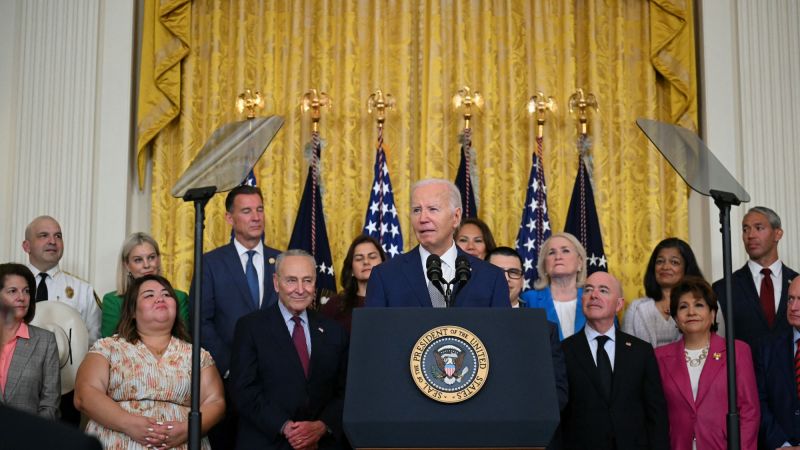In a surprising turn of events, the White House has shifted its approach to immigration twice within a span of just two weeks, leaving many observers wondering about the administration’s stance on the issue. Initially, President Joe Biden seemed to be following in the footsteps of his predecessor, Donald Trump, by imposing stricter limitations on asylum-seekers crossing the border illegally. This move, which was met with criticism from progressives and immigration advocates, was a clear attempt to address the changing sentiment in the country towards asylum-seekers.
However, on Tuesday, the Biden administration reversed course and announced a new executive action that provides additional protection to undocumented immigrants who are already living in the United States. Specifically, this action will benefit spouses of US citizens and their children, potentially granting legal status to about 500,000 families. This move stands in stark contrast to Trump’s campaign promise to deport millions of people if reelected.
Under current federal law, undocumented individuals who marry US citizens are required to leave the country and apply for legal residency, creating a disruptive and uncertain process for families. The new executive action will allow spouses to apply for residency without having to leave the US, ensuring that families can stay together during the process. While some critics have questioned the necessity of this policy, supporters argue that it strikes a balance in the complex and multifaceted immigration debate.
One key concern surrounding this new action is its potential lack of permanence. As past immigration policies have been subject to reversal by subsequent administrations or invalidated by courts, the long-term impact of Biden’s executive action remains uncertain. The Deferred Action for Childhood Arrivals (DACA) program, enacted by the Obama administration, serves as a stark example of the challenges faced by immigration policies implemented through executive power.
Despite the potential for reversals or legal challenges, Biden’s recent actions signal a shift towards a more compassionate approach to immigration, particularly for those who have long been living in the shadows. As the debate over immigration reform continues to evolve, the future of policies like DACA and the implications of executive actions remain uncertain. Only time will tell how these decisions will shape the broader conversation on immigration in the United States.











